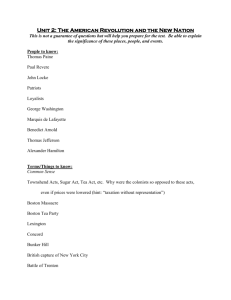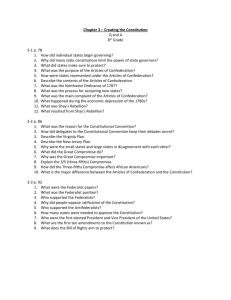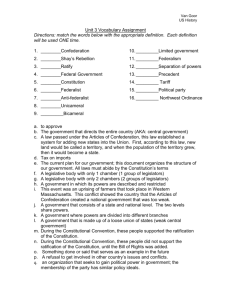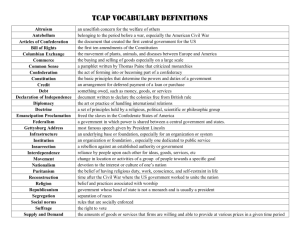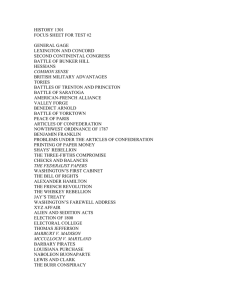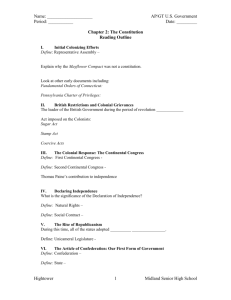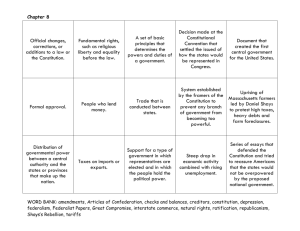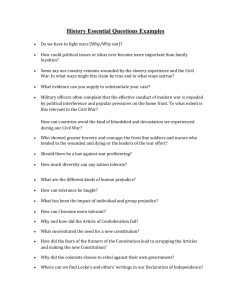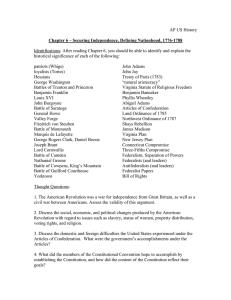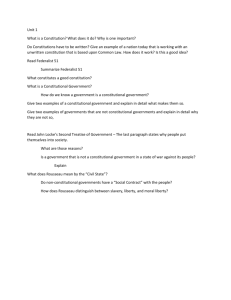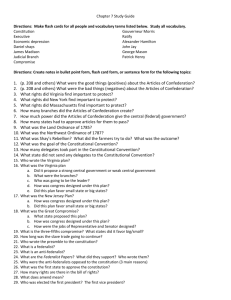Revolution & Constitution Review Sheet - High School
advertisement
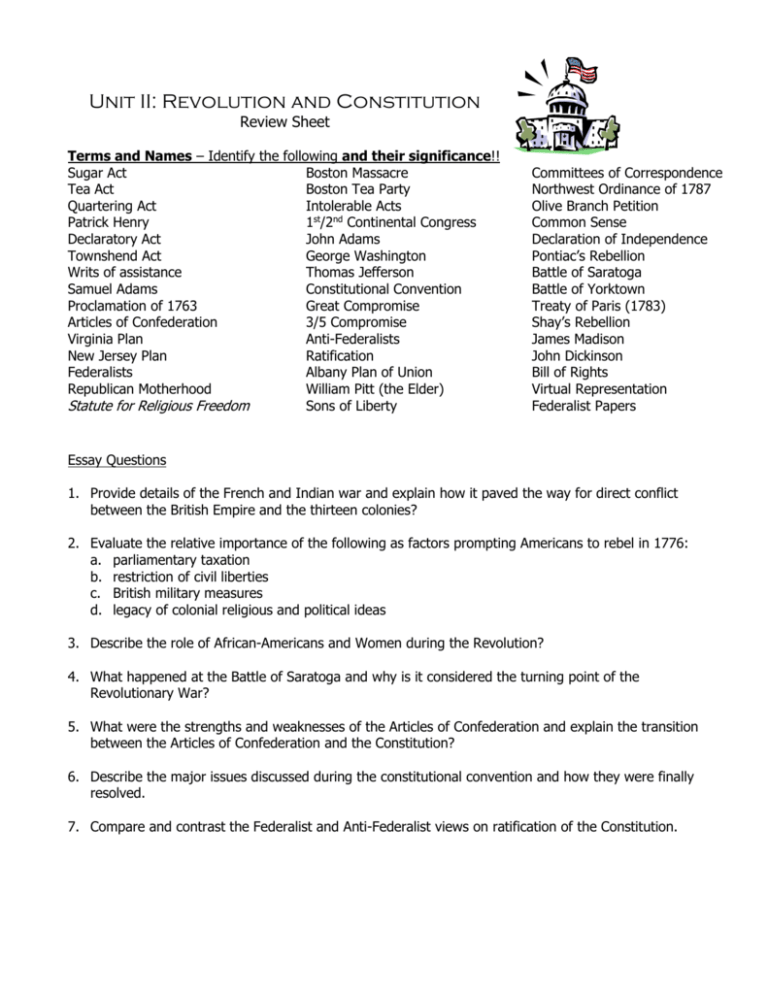
Unit II: Revolution and Constitution Review Sheet Terms and Names – Identify the following and their significance!! Sugar Act Boston Massacre Tea Act Boston Tea Party Quartering Act Intolerable Acts Patrick Henry 1st/2nd Continental Congress Declaratory Act John Adams Townshend Act George Washington Writs of assistance Thomas Jefferson Samuel Adams Constitutional Convention Proclamation of 1763 Great Compromise Articles of Confederation 3/5 Compromise Virginia Plan Anti-Federalists New Jersey Plan Ratification Federalists Albany Plan of Union Republican Motherhood William Pitt (the Elder) Statute for Religious Freedom Sons of Liberty Committees of Correspondence Northwest Ordinance of 1787 Olive Branch Petition Common Sense Declaration of Independence Pontiac’s Rebellion Battle of Saratoga Battle of Yorktown Treaty of Paris (1783) Shay’s Rebellion James Madison John Dickinson Bill of Rights Virtual Representation Federalist Papers Essay Questions 1. Provide details of the French and Indian war and explain how it paved the way for direct conflict between the British Empire and the thirteen colonies? 2. Evaluate the relative importance of the following as factors prompting Americans to rebel in 1776: a. parliamentary taxation b. restriction of civil liberties c. British military measures d. legacy of colonial religious and political ideas 3. Describe the role of African-Americans and Women during the Revolution? 4. What happened at the Battle of Saratoga and why is it considered the turning point of the Revolutionary War? 5. What were the strengths and weaknesses of the Articles of Confederation and explain the transition between the Articles of Confederation and the Constitution? 6. Describe the major issues discussed during the constitutional convention and how they were finally resolved. 7. Compare and contrast the Federalist and Anti-Federalist views on ratification of the Constitution.
